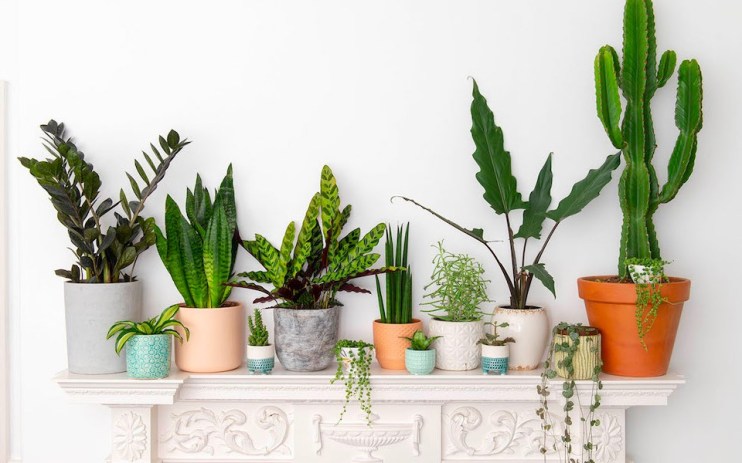The companies finding the perfect house plant for you

Before lockdown, house plants were around to brighten up the place. Now for many of us, they are our best friends and sole confidants, helping pull us through the long, lonely days.
During the pandemic, sales of indoor plants have spiked, with a host of new subscription delivery services cropping up to meet the demand for our little green buddies.
There’s something appropriate, then, about a new lonelyhearts-style service that promises to match-make you with your ideal housebound shrub. You may be about to meet a tall, handsome banana plant that could change your life forever.
The “Bloombox Club” – based in London’s Weston Street Leather Market – promises to pair you with the perfect plant for your lifestyle. A hypochondriac’s house, for instance, may be filled with weeping figs, ponytail palms, peace lilies and variegated candelabra cacti, all with purported health benefits.
Founded in 2015, The Bloombox Club now offers monthly subscription boxes and bundles to build up the biodiversity in your home, lower stress hormones, and boost your overall well-being.
At pre-arranged times, you will receive a compatible Plant Buddy along with a plant-care booklet written by Bloom Box Club founder Dr Katie Cooper, a former psychology lecturer and therapist.
“Once we start paying attention to plantlife, and nurturing specific plants over an extended period, the benefits accumulate,” says Cooper. “Some of these effects come from evolved responses, while others are due to changes in thought patterns. It’s a mutually supportive relationship.”
Instant benefits of plant care are improved air quality, better respiratory health, a stronger immune system, faster recuperation times, fatigue relief and better concentration.
“We want the Bloom Box Club community to benefit as much as they can from our plants without needing to trawl through mounds of research. Where the constructed environment exhausts brain capacity, the visual and chemical properties of plants restore it.
“We have an innate compatibility with natural patterns, which draws us to them without effort. They fascinate us whilst simultaneously resting our direct attention. Although all plants are restorative, some are more so than others, due to qualities such as colour, pattern distribution and texture. For example, fractal patterns have a marked influence on participants’ ability to focus on a task.”
She says yellow can help positivity, red boosts energy and soft pink promotes a moment of calm.
If nightshade is more to your tastes, you may want to turn to Terry Baker, a specialist in digitalis. The gardens consultant, designer and foxglove breeder runs the award-winning Botanic Nursery in Atworth, Wiltshire, alongside his wife Mary. The couple, who spend their days surrounded by goblin gloves, fairy hats and ruby slippers, silver foxes and dalmatians, are offering 2,000 specimen foxgloves. For £52.50 you could bag yourself popular varieties including Pam’s Choice, which was discovered in a compost heap in south Carolina or Pam’s Split, a large-flowered strawberry foxglove.
Mary, who also curate the National Collection of foxgloves, says: “What is more natural and evocative of British garden than foxgloves? They are must-haves. Of the 24 species, 23 are perennial. They live for three to five years but produce abundant seed.”
Many myths surround the plant. Dew collected from blossoms is allegedly used in spells for communicating with fairies. In the Scottish borders, foxglove leaves were put near babies’ cradles for protection from bewitchment. In the 1820s, Kent had medicinal foxglove farms growing plants for London’s doctors to prescribe. Digitalis is still used to treat heart disorders and other conditions.
The famous gardener Gertrude Jekyll maintained that, if possible, we should always have a quarter acre of mixed woodland as part of our gardens. And now you know how.